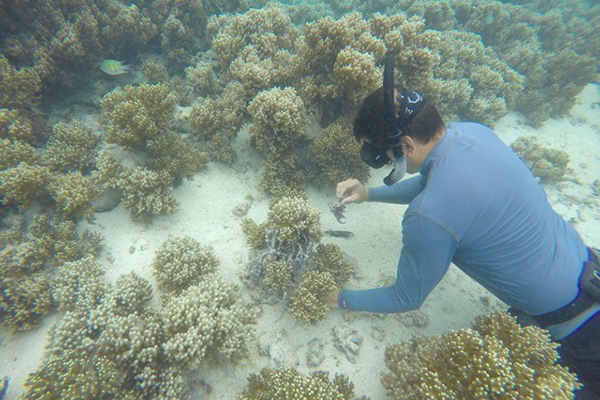
Full Text:
Researchers have discovered for the first time that a common marine sponge hosts bacteria that specialize in the production of toxic compounds nearly identical to man-made fire retardants, a finding that could help scientists better understand the human health implications of these common additives.
The new findings moved the research team a step closer to unraveling the mysteries of this powerful group of chemical compounds, known as polybrominated diphenyl ethers (PBDEs). Manufacturers add PBDEs to foam, textiles, electronics and other products to make them less flammable. These industrial chemicals are powerful endocrine disruptors that mimic the activity of the human body's most active thyroid hormone.Image credit: Jason Biggs